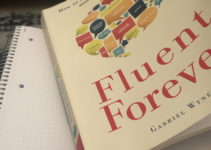Aristotle once said, “We are what we repeatedly do”. Many people take that to heart and seek to build a life full of positive habits. Darren Hardy is one such person. He took that quote, turned it into a lifestyle, and wrote a book about it. That book is The Compound Effect. A friend recently recommended it to me – and I enjoyed it. I want to break down what’s in the book and my reaction to it.
What is the Compound Effect?
Hardy summarizes the Compound Effect the best with this equation:
Small, smart choices + Consistency + Time = Radical Difference
And therein lies the thesis of this book. To Hardy, the essence of one’s life is built from the small habits that we do every day, over and over again. His book breaks this equation into separate components and gives copious examples – both for how to be successful applying the principle and how to fail. He covers it all in six chapters.
Chapter 1: The Compound Effect in Action
In the first chapter, Hardy gives a number of anecdotes about The Compound Effect in action. Then, he starts slinging useful advice. He urges the reader to figure out what they wish they could accomplish, but haven’t. Then, he challenges you to write down your excuses for why you haven’t accomplished those things yet.
From there, he guides you to brainstorm positive habits that could help you accomplish your goals – and the negative habits that are currently in your way.
Chapter 2: Choices
In the second chapter, Hardy takes on personal accountability for goals – namely, your own accountability. He points out that we are the ones responsible for our habits and for taking full responsibility of the choices we have made to bring us to where we are in life.
The tool he recommends to build awareness of the choices you are making – and to take responsibility for them – is tracking. This was a bit of a surprise to me. I’m a HUGE believer in tracking what you want to improve in your life, but I hadn’t made the mental leap to consider that accountability.
Chapter 3: Habits
Based on the volume of my notes from this book, this chapter was the most impactful to me. After you’ve accepted accountability for your life (see chapter 2), then it’s time to evaluate whether you’re headed the way you want to be. He points out that a lot of our habits are formed unconsciously, but we can choose to change them. Oh, and he talks about how will-power is garbage and have a clearly-defined purpose and clearly-defined goals are going to get you where you want to go.
He closes the chapter with best practices for how to break bad habits and build good ones.
Chapter 4: Momentum
The fourth chapter is all about Newton’s first law of motion. An object in motion stays in motion, and an object at rest stays at rest…unless acted upon by an outside force. That outside force in this case is made up of your habits. As you continue making small, meaningful steps toward your goals, it will get easier and easier to take those steps.
Chapter 5: Influences
Now that you’re moving toward your goals, Hardy takes some time to talk about optimizing your journey. In this chapter, he takes on your influences – that is, your input, associations, and environment. He makes an argument to evaluate what and who you are bringing into your life, with a lens toward whether those people and things are moving you toward your goal.
Fear not – he isn’t completely black-and-white about cutting media and friends out of your life. He notes that different sources of influence are manageable for different amounts of time, and to protect your time and attention.
Chapter 6: Acceleration
In the final chapter, Hardy presents some ideas for speeding you along your journey toward your goals. Once again, the onus is on you to identify and act on the opportunities to get a boost. He offers some concrete ideas.
Summary: My Thoughts
Upsides
I’ll start this off by saying that I think Hardy’s central thesis is absolutely correct, and if you’re looking for a quick summary of the impact of consistent, clear habits and goals, this is a great book to check out. I agree that we are a sum of what we do. Taking time to examine the habits that we have, and building a plan for how to change the ones we want to change, can reap huge benefits for our lives. It’s not ground-breaking – the habit portion especially was a redux of everything I’ve read on goals – but it’s compact and to the point.
I really appreciate Hardy’s attitude on self-shame – he doesn’t see the point of it. It’s easy to get down on yourself for how long you’ve been entrenched in bad habits. And how long it takes to break them! But Hardy points out that habits are built over time, and especially as children, we have little control over what those habits are. He brings up neurosignatures or “brain grooves” – well-used patterns in our neurons that our brain gets used to utilizing. It takes time to relearn habits, and I love that he called that out.
He is also adamant that giving is the way to get. That is, when you want to get better at something or have more of it in your life, find ways to give what you’re seeking, and you’ll find more of it in your life.
Downsides
All that said, I did have a couple issues with this book. For one thing, his examples feel rather one-note (probably because they’re based on his life, so I can’t TOTALLY complain). But most of the things that he assumes the reader is seeking are things that are scientifically proven not to make us happy, like an expensive house, lots of money, and the “perfect” body.
Also, I see his point about personal responsibility. But in 2021, I have to raise my eyebrows and bring up that systemic issues can be significant barriers to people achieving their dreams. This book isn’t the place to tackle that, I fully understand, so I’m pointing it out here.
Anyway. This is a great, compact primer on what goals and habits can bring to your life. Check it out if you’re interested!


